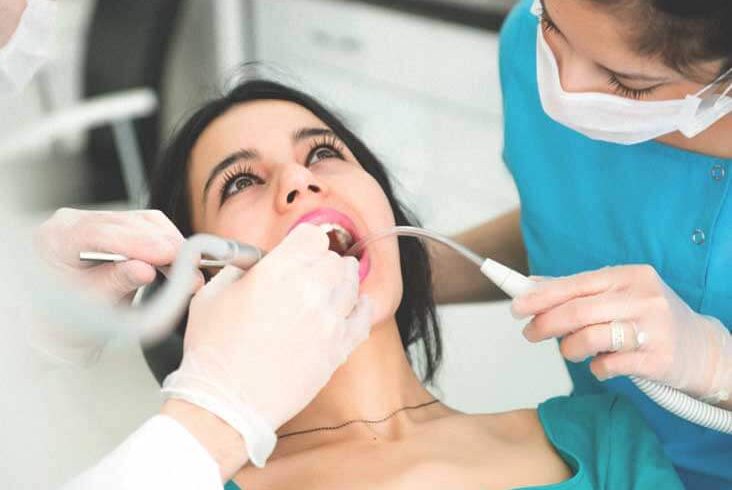Dental hygiene is essential. When you take care of your teeth and gums, you will prevent cavity infections and sensitive teeth. Besides, you should know that there is an association between your mouth health and your overall health. If you don’t care for your teeth, it can result in tooth decay, painful gum problems, tooth loss, and, eventually, loss of self-esteem.
Cosmetic dentistry is a term used to refer to a dental procedure that improves the appearance of one’s gum, teeth or bite.
Achieving healthy teeth requires taking the right steps daily by taking care of them and preventing the above problems. Hence, the best dental care practices include:
1. Teaching Children at An Early Age
Proper dental care requires that you start taking care of your teeth when you are young. Dental care should begin when a baby’s first teeth appear around six months. You can wipe your infant teeth with a clean and damp cloth.
At the age of two, your kid should brush by themselves. However, you should supervise and guide them accordingly.
It’s essential to start taking care of teeth early since one in every four children begins developing tooth decay at this age.
2. Flossing Daily
You should try and floss once a day. To floss means using a thin filament to remove any food between the teeth in areas that the toothbrush cannot reach. Flossing reduces the amount of plaque and bacteria in your mouth.
When you remove these stuck food particles, then you will prevent bad breath.
The correct way to floss is by holding the gadget firmly between your index finger and thumb. Gently slide the floss up and down your teeth, between the gums and on the sides. Finally, rinse your mouth with water.
It would help if you were careful not to snap the floss up and down the teeth since it can cause pain.
3.Visiting A Dentist Regularly
Several experts recommend you should see a dentist every six months for a check-up. For the routine consultation, your dentist will examine, clean, and remove any plaque.
Your dentist can sometimes use an x-ray to check for gum disease, cavities, and even mouth cancer.
However, if you practice proper dental hygiene daily, you will have a low risk of oral health issues. With these good practices, then you may visit the doctor less frequently.
For persistent bad breath, painful chewing or unusual taste in the mouth, seek affordable dental in three locations such as smile place Forest hill, Glen iris, and Tacoma.
You can subscribe to dental insurance if you have a history of dental problems like gingivitis or cavities. The insurance will allow you frequent check-ups.
4.Avoiding Sugary Products
When you consume excess sugar, it can cause cavities. Sugary food such as candies and desserts contain added sugar.
Some experts have stated that food containing starch like bread, chips, and pasta can cause cavities. Such foods linger in the mouth, after that breaking down into pure sugar that acid-producing bacteria feed. This acid causes tooth decay as well as eroding your teeth enamel.
The World Health Organization recommends that people limit daily sugar intake to below 10% of the daily calories.
You can substitute starchy food with food rich in fiber, fruits, vegetables, and dairy products without added sugar.
Besides, it’s best to avoid sugar sweetened-beverages such as sodas and juice since they can lead to higher chances of getting cavities. Substitute these drinks by drinking water, unsweetened tea, and milk.
5. Brushing Your Teeth Regularly
You should try and brush your teeth at least after every meal if its possible. However, if you can’t brush after every meal, do it twice daily. Most people forget to brush at night, yet it helps you get rid of the plaque and germs accumulated throughout the day.
Brushing well is equally essential. When cleaning, gently move the brush in a circular motion to remove plaque that leads to early gum disease.
You should avoid brushing too hard or using a hard-bristled toothbrush, which can damage your tooth gums and enamel. Use a toothbrush with soft bristles to prevent tooth sensitivity and permanent damage.
Also, try and change your toothbrush every three months. When brushing, also remember to clean your tongue.
After brushing, rinse the toothbrush with water, store in an upright position, and air dry it to prevent mold, bacteria, and yeast.
6. Use Enough Fluoride.
Experts believe that fluoride helps to prevent cavities. The ingredient is present in toothpaste and mouthwash.
The World Health Organization also recommends adding fluoride to water.
The fluoride operates by providing a protective barrier for your teeth and fighting germs that can lead to tooth decay.
7. Try Using Mouthwash
Certain mouthwashes are beneficial to your oral health. It helps in three different ways by cleaning hard to brush areas around the gums, reducing the amount of acid in your mouth, and adding some mineral to your teeth.
Enquire from your dentist the best mouthwash since there are brands best for children and those with sensitive teeth.
Most people love to smile. Practicing good dental care will help keep your teeth in good condition until adulthood. Therefore, Brush your teeth properly, use mouthwash, and seek affordable dental care in three locations that are accessible to you.






